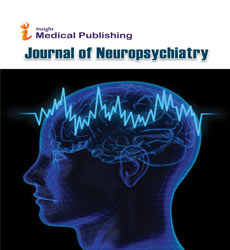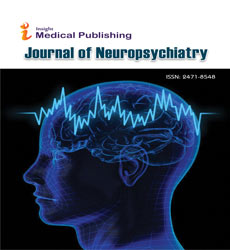Basic Concepts Involved in Neuropsychiatry
Andrea Magne*
Department of Neuropsychiatry, University of Birmingham and BSMHFT, Birmingham, UK
- *Corresponding Author:
- Andrea Magne
Department of Neuropsychiatry
University of Birmingham and BSMHFT
Birmingham, UK
E-mail: andreamagne@gmail.com
Received Date: October 14, 2021; Accepted Date: October 28, 2021; Published Date: November 04, 2021
Citation: Magne A (2021) Basic Concepts Involved in Neuropsychiatry. J Neuropsychiatry Vol.5 No.1:004
Description
What is neuropsychiatry? And what is a neuropsychiatrist? The concept of writing an editorial that answers these questions was endorsed at the 2016 Annual Meeting of the American Neuropsychiatric Association, a way for psychiatrists, neurologists, psychologists, and neuroscientists to discover their overlapping interests. During the ruin of an espresso at this 12- month meeting, attendees stated that patients, and certainly referring physicians, seemed to be under pressure, as did the distinction between a "neuropsychiatrist" and a "normal psychiatrist." We set out to dispel the confusion about neuropsychiatry, but quickly discovered that the mission was not going as well as we had hoped. Neuropsychiatry is a method of observing intellectual issues and a method of practicing psychiatry. Also, the neuropsychiatry period refers to the connection between neurology, neuroscience, and psychiatry. The basic conceptual imperative of epochal neuropsychiatry is the concept that mind is the idea of behaviour. But beyond this basic concept, neuropsychiatry is developing, both as a discipline of medical observation and as a scientific exercise [1].
We have kept records of neuropsychiatry improvement for over 30,012 months in what is primarily an exciting medical, technological and cultural era. Many practicing psychiatrists today can recall adjustments to psychiatric exercises that were added, for example, by taking strong psychotropic drugs. Some psychiatrists began training as "psychopharmacologists." This became a completely new feature for the time and had to be described to the general public. Today psychopharmacology is an essential part of all psychiatric practices. Does the emerging discipline of neuropsychiatry continue to integrate into the mainstream that is reorganizing and transforming the psychiatric profession? In this text, we often speak today of the age of the neuropsychiatric. We also reveal how it is now possible to earn subspecialty certification in the discipline of behavioural neurology and neuropsychiatry. Neuropsychiatry, a department of psychiatry, is the research and remedy of psychiatric or behavioural problems that arise in sufferers with neurological problems. Neuropsychiatrists carry out neurological examinations, psychometric studies (neuropsychology), and complementary examinations to assess situations which include Parkinson's, dementia, schizophrenia, strokes, or head injuries.
Neuropsychology, in turn, enhances studies in neurology and psychiatry through analysing the connection among conduct and mind features in sufferers who've suffered a few kind of mind harm. In this manner, advances may be implemented with inside the diagnosis, remedy and rehabilitation of sufferers with deficits and harm to the brain mechanisms related to sure behaviours. Management of diverse psychiatric problems which includes dementia, schizophrenia, depression, bipolar disorder, obsessive compulsive disorder, phobias, panic disorder, character problems, sleep and sexual problems, impulse manipulate problems, ingesting problems, hysteria, somatoform problems, etc. High-first-rate demise offerings for issues associated with alcohol, Cannabis, opioids, benzodiazepines, nicotine, hallucinogens, cocaine, etc [2].
The greater particular time period neuropsychiatry refers back to the factor of psychiatry that specializes in the connection among the mind and conduct. Far from being slim and reductionist, neuropsychiatry entails integrative wondering that takes the mind into consideration in two-manner interplay with the environment, inclusive of the interpersonal world. Given our medical information that the mind is the organ from which all conduct arises, neuropsychiatrists are inquisitive about extensive type of topics: defining the mind networks that produce neurological behavioural symptoms; Discover neural and genetic strategies through which people alternate with experience; Description of strange neuronal plasticity in neuropsychiatric situations (e.g., schizophrenia); Clarification of neuropsychiatric shows of uncommon and not unusual place genetic diseases; Understand the mind mechanisms that underlie social relationships and so on. Neuropsychiatrists declare that expertise the mind and the way it works is crucial for all psychiatrists.
Although the mind is the idea of the organs in psychiatry, our subject isn't on my own in this. Also inside medicine, neurology and neurosurgery consciousness immediately at the mind; Outside of medicine, neuroscience and psychology proportion this vicinity. One manner to conceptualize the overlapping pursuits of those exceptional regions is to assume a Venn diagram made from 3 circles: psychiatry, neurology/ neurosurgery, and neuroscience/psychology. Neuropsychiatry is represented through the vicinity wherein those circles overlap. However, from a neurology/neurosurgery factor of view, this vicinity of 3-circle overlap is referred to as behavioral neurology or as a substitute cognitive neurology. From a mental factor of view, this vicinity might be referred to as neuropsychology or cognitive psychology. This perplexing terminology grew out of the numerous however interrelated histories of those exceptional scientific regions. Technological advances have made it viable to observe the mind characteristic of a dwelling man or women and additionally to observe the mind at the extent of genes, molecules, cells and circuits, in addition to conduct. Many fields of science, from physics to microbiology, from genetics to information science, have moved in the direction of this vital frontier. Scientific collaboration is key. In scientific medicine, the disciplines of psychiatry, neurology, neurosurgery, and neuroradiology are a part of this wave of medical hobby and enthusiasm [3-5].
References
- Goff DC, Sullivan LM, McEvoy JP (2005) A comparison of ten-year cardiac risk estimates in schizophrenia patients from the CATIE Study and matched controls. Schizophr Res 80(1): 45-53.
- Hendrie HC, Lindgren D, Hay DP (2013) Comorbidity profile and healthcare utilization in elderly patients with serious mental illnesses. Am J Geriatr Psychiatry 21(12): 1267-1276.
- Brooks SK, Webster RK, Smith LE (2020) The psychological impact of quarantine and how to reduce it: Rapid review of the evidence. Lancet 395(10277): 912-920.
- Siskind D, Honer WG, Clark S (2020) Consensus statement on the use of clozapine during the COVID-19 pandemic. J Psychiatry Neurosci 4(5): 222-223.
- Hidalgo-Mazzei D, Murru A, Reinares M, Vieta E, Colom F (2016) Big data in mental health: A challenging fragmented future. World Psychiatry 1(5): 186-187.

Open Access Journals
- Aquaculture & Veterinary Science
- Chemistry & Chemical Sciences
- Clinical Sciences
- Engineering
- General Science
- Genetics & Molecular Biology
- Health Care & Nursing
- Immunology & Microbiology
- Materials Science
- Mathematics & Physics
- Medical Sciences
- Neurology & Psychiatry
- Oncology & Cancer Science
- Pharmaceutical Sciences
